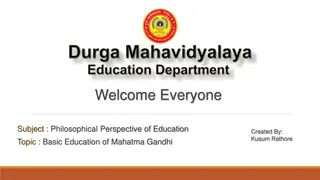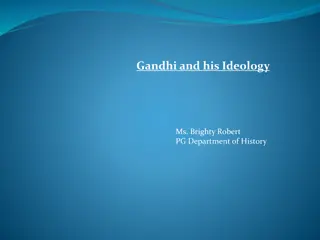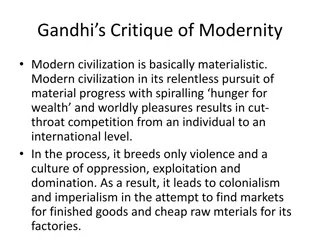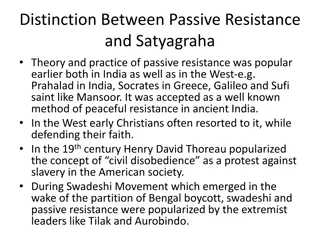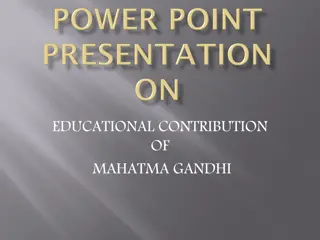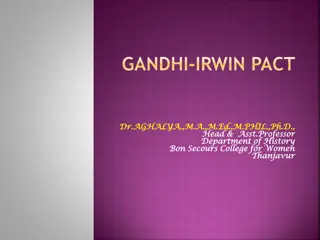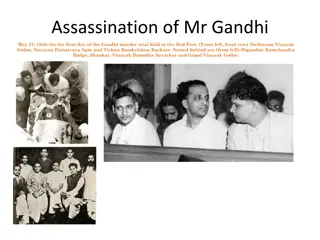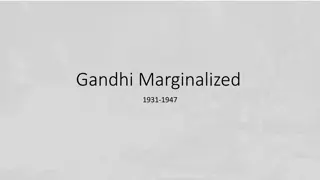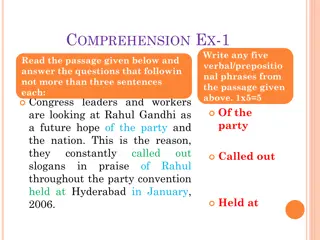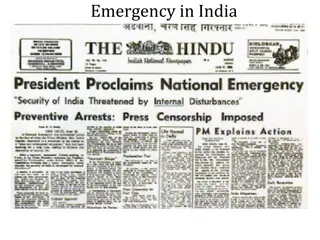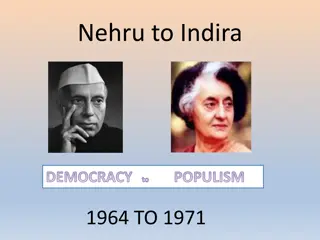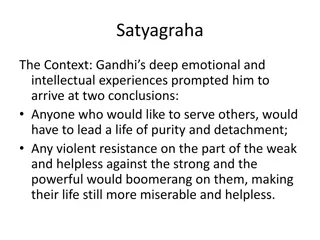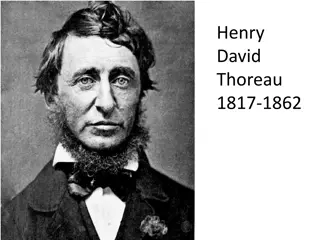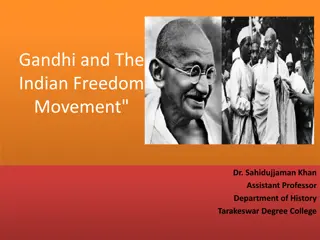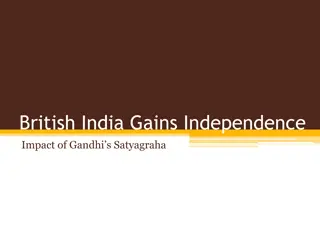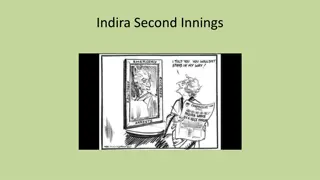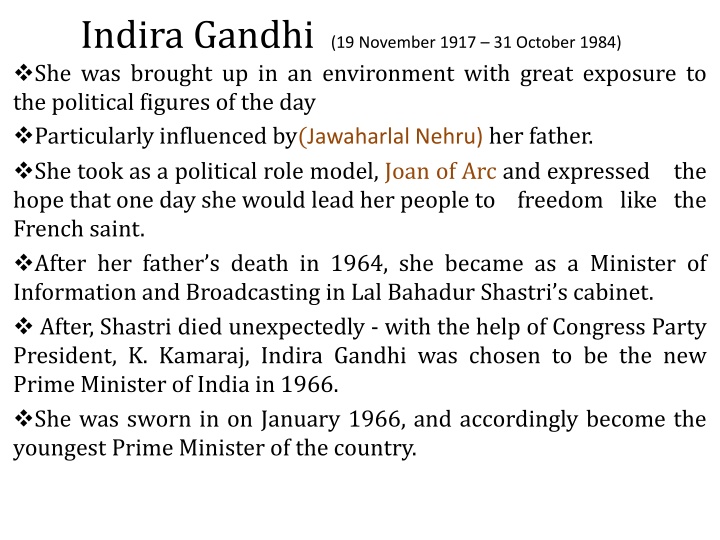
Indira Gandhi: Influential Indian Prime Minister & Iconic Leader
Indira Gandhi, born on November 19, 1917, was a prominent figure in Indian politics, serving as Prime Minister and implementing significant policies like bank nationalization and abolishing Privy Purses. Her leadership led to India's victory in the 1971 war with Pakistan and the creation of Bangladesh. Despite facing criticism and legal issues, she remains an enduring figure in Indian history due to her populist measures and dedication to eradicating poverty.
Download Presentation

Please find below an Image/Link to download the presentation.
The content on the website is provided AS IS for your information and personal use only. It may not be sold, licensed, or shared on other websites without obtaining consent from the author. If you encounter any issues during the download, it is possible that the publisher has removed the file from their server.
You are allowed to download the files provided on this website for personal or commercial use, subject to the condition that they are used lawfully. All files are the property of their respective owners.
The content on the website is provided AS IS for your information and personal use only. It may not be sold, licensed, or shared on other websites without obtaining consent from the author.
E N D
Presentation Transcript
Indira Gandhi (19 November 1917 31 October 1984) She was brought up in an environment with great exposure to the political figures of the day Particularly influenced by(Jawaharlal Nehru) her father. She took as a political role model, Joan of Arc and expressed hope that one day she would lead her people to French saint. After her father s death in 1964, she became as a Minister of Information and Broadcasting in Lal Bahadur Shastri s cabinet. After, Shastri died unexpectedly - with the help of Congress Party President, K. Kamaraj, Indira Gandhi was chosen to be the new Prime Minister of India in 1966. She was sworn in on January 1966, and accordingly become the youngest Prime Minister of the country. the freedom like the
Her Populist Prime Ministership Indria attracted significant electoral popularity helped by her personality and populist economic measures. She introduced more left-wing economic policies and sought to promote agricultural productivity. She abolished Privy Purses. In 1969, Prime Minister Indira Gandhi announced the nationalisation of 14 banks. In 1971, she led India to a decisive victory in a war with Pakistan in East Pakistan. This led to the creation of Bangladesh. In 1974, India completed their own nuclear bomb.
Her Domestic Policy (1966-1967) Devaluation of Indian currency To promote export and trade in the foreign market Initiated as a form of respite from economic hardships for the repaying of a $400 million loan for food imports amidst severe drought, shortage of adequate rainfall Agricultural stagnation between 1964 and 1966. Devalued the Indian currency by 36%, much more than the World Bank suggestions of only 15- 20% Her Second Term (1967-1971) Abolition of Privy the Purse The Privy Purse and privileges were established in 1948 and received Constitutional support in 1950. It was primarily meant to provide a tax-free compensation to the 565 erstwhile rulers of princely states, as a reward for giving up their Princedom
With her landslide victory in the general elections of 1971. 26thConstitutional Amendment Act of 1971 terminated the Privy Purse and associated privileges. Nationalisation Nationalisationof Banks of Banks Intention was the removal of monetary control by the few. Provision of adequate credit for agricultural and small industry. Rapid expansion of banking services to rural areas. Complete government ownership of banks. 14 major banks for the betterment and welfare of the society and extension of loan facilities to the impoverished sections. Her Third Term (1971-1977 ) Garibi GaribiHatao Hatao , or eradicate poverty , or eradicate poverty
Authoritarian Leanings and Imprisonment Authoritarian Leanings and Imprisonment Gandhi was criticized government corruption under her rule In 1975, the Allahabad High Court found her guilty of dishonest election practices, excessive election expenditure and of using government resources for party purposes. Instead of resigning, Gandhi emergency (June 25, 1975-March 1977) (21-month state of emergency) and imprisoned thousands of her opponents. for authoritarian tendencies and declared a state of



